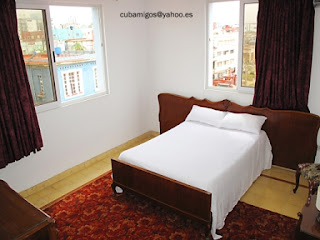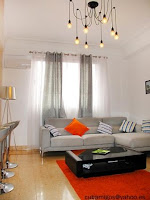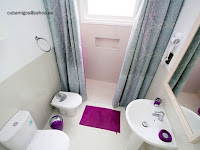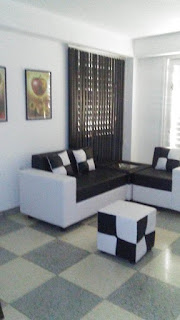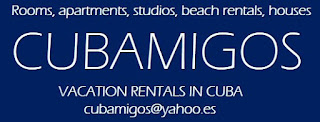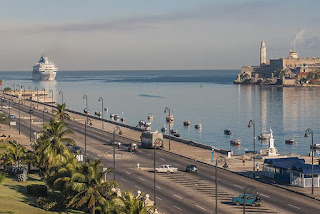Guida di viaggio di Cuba
Case Vacanza in Cuba: appartamenti, B & B, case sulla spiaggia, case con piscina, tour privati / Case vacanze in Cuba Appartamenti, case con piscina, camere, guide private. Tutte le aree dell'Avana e di altre importanti città di Cuba
CUBAMIGOS: AFFITTI VACANZE A CUBA
CUBA + FRIENDS, UN DIFFERENTE FORMA DELLA VACANZA: FARE AMICI
CUBAMIGOS vi offre camere in case coloniali, appartamenti con vista sul mare e sulla città, monolocali, case sulla spiaggia e case con piscina a Cuba
Camere doppie, suite semplici e perfette dall'Avana Vecchia al Miramar residenziale, per non parlare di El Vedado con il suo paesaggio di una città progettata nel
1910, l'architettura degli anni '50 con i suoi meravigliosi parchi e viali.
Con la collaborazione dei padroni di casa e delle loro famiglie possono preparare cene e eventi speciali.
A causa di recenti eventi in politica, Cuba riceve milioni di visitatori e siamo orgogliosi di offrire un'esperienza e luoghi indimenticabili secondo i loro gusti e le loro esigenze.
Scrivi a cubamigos@yahoo.es e ci dica il tipo di alloggio che stai cercando.
Puoi visitare il nostro sito web: http://cubamigos.webcindario.com
Vacations in Cuba: 3 facts: A different way of having your vacation, making friends. Travel your way supporting our way. Reliable and experienced local hosts and guides. / Vacaciones en Cuba 3 verdades: una forma diferente de vacacionar, haciendo amigos. Viaje y contribuya para que nuestras vidas sean mejor. Anfitriones y Guías confiables y con experiencia FOR A LOCAL GUIDE IN HAVANA HTTP://CUBALOCAL.WEBCINDARIO.COM
domingo, 3 de diciembre de 2017
martes, 14 de noviembre de 2017
CUBA, HABANA, APARTAMENTO BUEN SAMARITANO
APARTAMENTO MODERNO E INDEPENDIENTE EN LA HABANA
Apartamento independiente, 2 habitaciones, vista a ciudad, Vedado, La Habana. Apartamento climatizado con vista a la ciudad. Edificio con elevador moderno. Totalmente independiente. 2 habitaciones climatizadas y con ventanas. Sala de estar, cocina y baño. Bella decoración. TV, equipo multimedia, ventiladores, microwave, refrigerador, cocina y lavadora. Servicio de limpieza incluido. Servicios de desayuno y cenas opcionales. Otros servicios extras disponibles. Agua caliente 24 horas. Cerca de Embajada EE.UU., Malecón de la Habana y avenida Línea.
Apartamento independiente, 2 habitaciones, vista a ciudad, Vedado, La Habana. Apartamento climatizado con vista a la ciudad. Edificio con elevador moderno. Totalmente independiente. 2 habitaciones climatizadas y con ventanas. Sala de estar, cocina y baño. Bella decoración. TV, equipo multimedia, ventiladores, microwave, refrigerador, cocina y lavadora. Servicio de limpieza incluido. Servicios de desayuno y cenas opcionales. Otros servicios extras disponibles. Agua caliente 24 horas. Cerca de Embajada EE.UU., Malecón de la Habana y avenida Línea.
está enteramente climatizado, con sala de estar, cocina, dos habitaciones y baño. En la sala de estar encontrará TV digital, equipo reproductor de video/música, ventilador, muebles cómodos y ventanas con vista a la ciudad. Lla cocina con refrigerador, cocina de gas, utensilios de cocina y horno microwave. Los cuartos son independientes, cada uno con una cama amplia, aire acondicionado, ventilador de techo y muebles para guardar sus pertenencias. Las amplias ventanas de las habitaciones permiten la entrada de luz y fresco natural y el disfrute de la vista a la ciudad. Uno de los cuartos tiene su propio baño de servicio. El baño del apartamento tiene agua caliente y fría disponible las 24 horas de día.
El apartamento está céntricamente ubicado en la calle L, en un edificio con elevador moderno que funciona durante todo el día. Cerca se encuentran la avenida Línea, la Embajada de Estados Unidos, el Malecón de la Habana y el teatro Beltolt Brech. A pocas cuadras de distancia hay una zona WIFI para acceder a Internet. La zona es segura para caminar y abundan los negocios particulares y estatales. Para transportarse a zonas más lejanas pueden utilizarse los servicios de taxi o tomar un ómnibus colectivo. Cerca: Banco de Linea y M, banco del Focsa, hoteles Nacional, Capri y Habana Libre, Clinica internacional Camilo Cienfuegos, restaurantes y paladares, gasolineras teatros, cines, bares.
CUBA, HAVANA, APARTMENT GOOD SAMARIAN
APARTMENT IN HAVANA: MODERN, INDEPENDENT, CENTRAL
Apartment acclimatized with view to the city.
cubamigos@yahoo.es
Apartment acclimatized with view to the city.
Building with elevator. Completely independent.
Two acclimatized rooms and with windows. Living room, kitchen and bathroom. Beautiful decoration.
TV, music player, fans, microwave, refrigerator, kitchen and washing machine. Included: service of cleaning.
Optional services: Breakfast, dinners and others. Hot water 24 hours.
The apartment is centrally located in L street, in a building with modern elevator.
Nearby are the avenue Linea where public transportation is available, the Embassy of United States, the Malecon of Havana , theaters, cinemas, hotels, banks.
No far from there there is an area WIFI to access to Internet. The area is safe to walk.
cubamigos@yahoo.es
+5352646921 whatssap & telegram
cubamigos@yahoo.es
more photos:
http://cubamigos.webcindario.com/apart_buen_samaritano.html
cubamigos@yahoo.es
more photos:
http://cubamigos.webcindario.com/apart_buen_samaritano.html
martes, 25 de abril de 2017
CUBA: ENTRY & EXIT FORMALITIES IN CUBA
Cuba: Entry & Exit Formalities in Cuba
Whether it's your first or
50th time, descending low into José Martí International Airport, over rust-red
tobacco fields, is an exciting and unforgettable experience. Entry procedures
are relatively straightforward, and with approximately three million visitors a
year, immigration officials are used to dealing with foreign arrivals.
Outside Cuba, the capital city
is called Havana, and this is how travel agents, airlines and other
professionals will refer to it. Within Cuba, it's almost always called La
Habana. For the sake of consistency, we use the former spelling.
Visas
Regular tourists who plan to
spend up to two months in Cuba do not need visas. Instead, you get a tarjeta de
turista (tourist card) valid for 30 days, which can be extended once you're in
Cuba (Canadians get 90 days plus the option of a 90-day extension).
Package tourists receive their
card with their other travel documents. Those going 'air only' usually buy the
tourist card from the travel agency or airline office that sells them the plane
ticket, but policies vary (eg Canadian airlines give out tourist cards on their
airplanes), so you'll need to check ahead with the airline office via phone or
email.
In some cases, you may be
required to buy and/or pick up the card at your departure airport, sometimes at
the flight gate itself some minutes before departure. Some independent
travelers have been denied access to Cuba flights because they inadvertently
haven't obtained a tourist card.
Once in Havana, tourist-card
extensions or replacements cost another CUC$25. You cannot leave Cuba without
presenting your tourist card. If you lose it, you can expect to face at least a
day of frustrating Cuba-style bureaucracy to get it replaced.
You are not permitted entry to
Cuba without an onward ticket.
Fill the tourist card out
clearly and carefully, as Cuban customs are particularly fussy about crossings
out and illegibility.
Business travelers and
journalists need visas. Applications should be made through a consulate at
least three weeks in advance (longer if you apply through a consulate in a
country other than your own).
Documents Required on Entry
Passport
valid for at least one month beyond your departure date
Cuba
'tourist card' filled out correctly
Proof of
travel medical insurance (random checks at airport)
Evidence of
sufficient funds for the duration of your stay
Return air
ticket
Customs
Regulations
Cuban
customs regulations are complicated. For the full up-to-date scoop see
www.aduana.co.cu.
Entering
Cuba
Travelers are allowed to bring
in personal belongings including photography equipment, binoculars, a musical
instrument, radio, personal computer, tent, fishing rod, bicycle, canoe and
other sporting gear, and up to 10kg of medicines. Canned, processed and dried
food are no problem, nor are pets (as long as they have veterinary
certification and proof of rabies vaccination).
Items that do not fit into the
categories mentioned above are subject to a 100% customs duty to a maximum of
CUC$1000.
Items prohibited from entry
into Cuba include narcotics, explosives, pornography, electrical appliances
broadly defined, light motor vehicles, car engines and products of animal
origin.
Leaving Cuba
You are allowed to export 50
boxed cigars duty-free (or 23 singles) and up to US$5000 (or the equivalent) in
cash.
Exporting undocumented art and
items of cultural patrimony is restricted and involves fees. Normally, when you
buy art you will be given an official 'seal' at the point of sale. Check this
before you buy. If you don't get one, you'll need to obtain one from the Registro
Nacional de Bienes Culturales in Havana. Bring the objects here for inspection;
fill in a form; pay a fee of between CUC$10 and CUC$30, which covers from one
to five pieces of artwork; and return 24 hours later to pick up the
certificate.
Travelers should check local
import laws in their home country regarding Cuban cigars. Some countries,
including Australia, charge duty on imported Cuban cigars.
Licenses for US Visitors
The US government issues two
sorts of licenses for travel to Cuba: ‘specific’ and ‘general.’ Specific
licenses require a lengthy and sometimes complicated application process and
are considered on a case-by-case basis; their application should start at least
45 days before your intended date of departure.
Most visitors will travel
under general licenses. General licenses are self-qualifying. Persons traveling
under a general license do not need to notify OFAC (Office of Foreign Assets
Control) of their travel plans. Travelers sign an affidavit stating the purpose
of travel and purchase a Cuban Visa at check-in when departing the United
States via flights. Visas average $50, purchased through airlines or
established third parties.
You might need supporting documentation
to back up your claim when you book your flight ticket. Check with the US
Department of the Treasury
(www.treasury.gov/resource-center/sanctions/Programs/pages/cuba.aspx) to see if
you qualify for a license.
Extensions
For most travelers, obtaining
an extension once in Cuba is easy: you just go to the inmigración (immigration
office) and present your documents and CUC$25 in stamps. Obtain these stamps
from a branch of Bandec or Banco Financiero Internacional beforehand. You'll
only receive an additional 30 days after your original 30 days (apart from
Canadians who get an additional 90 days after their original 90), but you can
exit and re-enter the country for 24 hours and start over again (some travel
agencies in Havana have special deals for this type of trip). Attend to
extensions at least a few business days before your visa is due to expire and
never attempt travel around Cuba with an expired visa.
Cuban Immigration
Offices
Nearly all provincial towns
have an immigration office (where you can extend your visa), though the staff
rarely speak English and aren't always overly helpful. Try to avoid Havana's
office if you can, as it gets ridiculously crowded.
Baracoa , Bayamo (In a big complex 200m south of the Hotel Sierra Maestra), Camagüey, Ciego de Ávila, Cienfuegos, Guantánamo
(Directly behind Hotel Guantánamo), Habana,
Holguín, Las Tunas, Sancti Spíritus, Santa Clara (Three blocks east of
Estadio Sandino), Santiago de Cuba
Stamps for visa extensions are sold at the Banco de Crédito y Comercio at Felix
Peña No 614 on Parque Céspedes, Trinidad
(Off Paseo Agramonte) , Varadero.
US Citizens & Cuba
When
President Obama decided to restore diplomatic relations with Cuba, decades of
regulations started to shift, though some measures still await change (like
banking). To further complicate matters, it's speculated that the current
agreements would be altered by the Trump administration.
In
conjunction with the US embargo against Cuba, the US government 'travel ban,'
which had prevented US citizens from visiting Cuba, relaxed under the Obama
administration. Technically a treasury law prohibiting Americans from spending
money in Cuba, it squelched leisure travel for more than 45 years. At present,
visitors undertaking non-tourism related activities are allowed to visit the
island provided they meet the requirements of special categories.
A little
history: The 1996 Helms-Burton Act, which was signed into law by President
Clinton on March 12, 1996, imposes without judicial review fines of up to
US$50,000 on US citizens who visit Cuba without US government permission. It
also allows for confiscation of their property. In addition, under the Trading
with the Enemy Act, violators may face up to US$250,000 in fines and up to 10
years in prison.
Under the
Obama administration there was considerable progress in Cuba relations.
Bilateral agreements have eased travel restrictions for Cuban-Americans, direct
commercial flights are operating between the US and Cuba, there's postal
service between the two countries, restrictions on the goods brought from Cuba
has relaxed and there is greater leniency in the granting of legal licenses.
Visit
www.cubacentral.com to inform yourself of the latest legislation on Capitol
Hill.
Do you need a list of names and places to provide to the american authorities? Just write to cubamigos@yahoo.es
Do you need a list of names and places to provide to the american authorities? Just write to cubamigos@yahoo.es
domingo, 23 de abril de 2017
CUBA TRAVEL INSURANCE
Travel Insurance for Cuba
Comprehensive travel insurance to cover theft, loss and medical problems is highly recommended.
Some policies specifically exclude dangerous activities such as scuba diving, motorcycling, skiing and even trekking: read the fine print.
Check that the policy covers ambulances or an emergency flight home.
Find out in advance if your insurance plan will make payments directly to providers or reimburse you later for overseas health expenditures.
If you have to claim later, make sure you keep all documentation.
Paying for your airline ticket with a credit card often provides limited travel accident insurance – ask your credit card company what it is prepared to cover.
More on Health and safety
Cuba is generally safer than most countries, with violent attacks extremely rare. Petty theft (eg rifled luggage in hotel rooms or unattended shoes disappearing from the beach) is common, but preventative measures work wonders. Pickpocketing is preventable: wear your bag in front of you on
Begging is more widespread and is exacerbated by tourists who hand out money, soap, pens, chewing gum and other things to people on the street. If you truly want to do something to help, pharmacies and hospitals will accept medicine donations, schools happily take pens, paper, crayons etc, and libraries will gratefully accept books. Alternatively pass stuff onto your casa particular owner or leave it at a local church. You can also write to us and we make the arrangements and take you to the right places for donations (cubamigos@yahoo.es)
Health
From a medical point of view, Cuba is generally safe as long as you're reasonably careful about what you eat and drink. The most common travel-related diseases, such as dysentery and hepatitis, are acquired by the consumption of contaminated food and water. Mosquito-borne illnesses are not a significant concern on most of the islands within the Cuban archipelago. Pregnant women or women who plan to get pregnant and their partners should check travel advisories before going to Cuba.Prevention is the key to staying healthy while traveling around Cuba. Travelers who receive the recommended vaccines and follow commonsense precautions usually come away with nothing more than a little diarrhea.
Insurance
Since May
2010, Cuba has made it obligatory for all foreign visitors to have medical
insurance. Random checks are made at the airport, so ensure you bring a printed
copy of your policy.
Should you end up in hospital, call Asistur for help with insurance and medical
assistance. The company has regional offices in Havana, Varadero, Cayo Coco,
Guardalavaca and Santiago de Cuba.
Outpatient
treatment at international clinics is reasonably priced, but emergency and
prolonged hospitalization gets expensive (the free medical system for Cubans
should only be used when there is no other option).
Should
you have to purchase medical insurance on arrival, you will pay from CUC$3 per
day for coverage of up to CUC$25,000 in medical expenses (for illness) and
CUC$10,000 for repatriation of a sick person.
Travelers can purchase such a policy in their country
of residence, prior to their trip, but they can also purchase it at their
arrival in Cuba, just at the point of entering.
In case of buying the insurance at the arrival in
Cuba, they can choose one of the following options:
Option A
|
|
Coverage
|
Limits (in CUC)
|
Medical expenses due to sudden diseases /
accidents
|
10 000.00
|
Repatriation
& Transport
|
10 000.00
|
Personal
Civil Liability
|
10 000.00
|
Advance of judicial bail bond
|
5 000.00
|
Assistance
|
1 000.00
|
Premium per passenger per day: 2.50 CUC
|
|
Option B
|
|
Coverage
|
Limits (in CUC)
|
Medical expenses due to sudden diseases /
accidents
|
25 000.00
|
Repatriation
& Transport
|
5 000.00
|
Premium per passenger per day: 3.00 CUC
|
|
(1 CUC = 1.08
USD)
FOR
THE INSURANCE PURCHASED AT ARRIVAL ONLY
In both options (A and B) an extra premium of 2.00 CUC
per passenger per day should be paid by those who intend to take part in sport
competitions or practicing high risk sports, such as alpinism, diving,
parachuting, etc.
An extra premium of 2.00 CUC per passenger per day should be paid by
people older than 70 years as well.
Health Care for Foreigners in Cuba
The Cuban government has established a
for-profit health system for foreigners called Servimed, which is entirely separate
from the free, not-for-profit system that takes care of Cuban citizens. There
are more than 40 Servimed health centers across the island, offering primary
care as well as a variety of specialty and high-tech services. If you're
staying in a hotel, the usual way to access the system is to ask the manager
for a physician referral. Servimed centers accept walk-ins. While Cuban
hospitals provide some free emergency treatment for foreigners, this should
only be used when there is no other option. Remember that in Cuba medical
resources are scarce and the local population should be given priority in free
health-care facilities.
If
you develop a life-threatening medical problem, you'll probably want to be
evacuated to a country with state-of-the-art medical care. Since this may cost
tens of thousands of dollars, be sure you have insurance to cover this before
you depart.
There are special pharmacies for
foreigners also run by the Servimed system, but all Cuban pharmacies are
notoriously short on supplies, including pharmaceuticals. Be sure to bring
along adequate quantities of all medications you might need, both prescription
and over the counter. Also, be sure to bring along a fully stocked medical kit.
Pharmacies marked turno permanenteor pilotos are open 24 hours.
Tap Water
Tap
water in Cuba is not reliably safe to drink. Bottled water called Ciego Montero
rarely costs more than CUC$1, but is sometimes not available in small towns.
Stock up in the cities when going on long bus or car journeys.
HOLIDAY RENTALS IN CUBA
viernes, 21 de abril de 2017
HOTEL NACIONAL DE CUBA, Habana.
HOTEL NACIONAL DE CUBA, Habana.
Hotel Nacional de Cuba. Hotel insignia de la hotelería
cubana. Ubicado sobre una colina a pocos metros del mar en la zona más céntrica
de La Habana. Ha conservado durante ocho décadas todo el esplendor de su arquitectura
ecléctica, Art Decó y morisca. Los cañones que integraron una antigua batería ,
que hoy se exhiben en su jardín, fueron declarados Patrimonio de la Humanidad
en 1998. A este Hotel le ha sido otorgada la condición de Monumento Nacional, también
la de Hotel Museo, declarada en el 2001. Aparece inscrito en el Registro
"Memoria del Mundo".
Está ubicado en la Calle 21 esquina a la Calle O, en el
Vedado, La Habana y fue inaugurado en el
Ball Room, la noche del 30 de diciembre de 1930.
Los terrenos en los que está situado el Hotel, formaron
parte de la zona que en los primeros siglos coloniales se denominaba Monte
Vedado, debido a un decreto del Gobierno Español que prohibía que en esta zona
se abriesen caminos hacia la playa. Es por esto que uno de los salones lleva el
nombre de "Sala Vedado".
Los constantes ataques de corsarios y piratas y luego la
Toma de La Habana por los ingleses, llevaron a la edificación de diversas obras
de protección y defensa, torreones, baterías, en los terrenos que hoy ocupan
los jardines del Hotel. De este sistema defensivo, actualmente se exhiben en el
jardín dos cañones: el “Krupp” y el "Ordóñez", siendo este último el
cañón más grande del mundo en su época.
A finales de la segunda década del siglo XX se decide
iniciar la construcción de un hotel lujoso. Las firmas americanas Mc Kim, Mead
& White y la Purdy Henderson Co, encargadas de los planos y la ejecución,
concluyeron la edificación en 14 meses.
Poseedor de 426 habitaciones desglosadas:
32 Habitaciones sencillas
308 Habitaciones dobles
11 Habitaciones triples
58 Habitaciones Junior
15 Suite
1 Suite Presidencial
1 Suite Real
Bares
Cabaret Parisién. Ofrece un gran show cubano, mostrando la
fusión de las culturas indoamericanas, hispanas y africanas que dieron origen a
la cultura cubana.
Un piso Ejecutivo, que incluye una recepción, oficinas,
salones, desayunador, una Oficina Ejecutiva.
El Apartamento de La República, zona muy exclusiva del
hotel, ofrece 200 metros cuadrados de elegantes salones propios para este tipo
de reuniones, cenas privadas, banquetes y cocteles. También cuenta con un
completo servicio de audio-visuales y de traducción.
La Sala 1930 o Compay Segundo, la de mayor capacidad, admite
organizar recepciones de 600 personas y cenas para un total de 450 comensales.
Centro de Negocios
Complejo Fitness Center Piscina que incluye el gimnasio, 2
piscinas y el snack bar.
El 4 de mayo de 1998 el Hotel Nacional fue declarado
Monumento Nacional por la Comisión Nacional de Monumentos de la República de
Cuba. Así quedó oficialmente reconocido el valor artístico e histórico de este
edificio que, construido en los terrenos que ocupaba en el siglo XVIII la
antigua Batería de Santa Clara, desde sus cimientos ya comenzaba a poseer
memoria.
La Batería de Santa Clara formaba parte del sistema de
fortificaciones coloniales de la ciudad, declarado en el año 1982, junto a la
Habana Vieja, Patrimonio de la Humanidad. Ubicada en un macizo rocoso frente al
mar, dejó como herencia al nuevo ocupante de su escenario, la vista al malecón
habanero. Sus restos, entre los que se encuentra el cañón más grande de la
época, quedaron formando parte de los jardines del Hotel.
Han sido clientes
Cientos de personalidades notables en las distintas
manifestaciones de las artes, la política, el comercio y del mundo de los
negocios, las ciencias y la cultura universal, sin dejar de incluir a la mafia
italo norteamericana.
Eduardo VIII, Príncipe de Gales, que viajara de incógnito a
Cuba en 1931; los escritores Rómulo Gallegos y Ernest Hemingway; Nelson Rockefeller;
el embajador ruso Macin Litvinov; el Barón Thyssen Stephen Boonemiza, que vivió
junto a su familia en el hotel desde 1947 hasta 1957; los Duques de Windsor;
Alexander Fleming, descubridor de la Penicilina; el boxeador Rocky Marciano; el
jugador de beisbol del equipo estadounidense Yankees de New York Micky Mantle,
estamparon sus firmas en el Registro de Huéspedes del Hotel.
Sin embargo, son las figuras del mundo de la cinematografía
y el espectáculo las que en mayor número lo visitan.
Marlon Brando, Ava Gardner, Errol Flyn, Tyrone Power, Rita
Hayworth, Libertad Lamarque, María Félix, Cantinflas, Tin Tan, Jorge Negrete,
Fred Astaire, Pedro Vargas, Agustín Lara, Nat King Cole, y otras personalidades
de la escena mundial dejaron huellas en el recuerdo de los testigos de aquella
época.
También fue huésped del Hotel Nacional Johny Weismuller, de
quien se cuenta hizo una demostración de sus dotes de nadador; Buster Keaton,
que llegó simulando una parálisis en una pierna, y Frank Sinatra, quien negó
haber cantado durante las reuniones de la mafia.
Otros nombres también conocidos, como los de Meyer Lansky y
Lucky Luciano, en cuyas manos estuvo el control del juego en el hotel desde
1933, se inscribieron en las memorias del Nacional.
Después del triunfo de la Revolución Cubana en 1959, el
Hotel Nacional continuó abriendo sus puertas a nuevos invitados. Yuri Gagarin,
Jean Paul Sartre, Simone de Beauvoir visitaron la instalación en la década de
1960. Con posterioridad estuvieron entre sus visitantes, Michel Legrand,
Francis Ford Coppola, Pierre Cardin y Daniela Miterrand.
La creación del Rincón del Cine en los predios del Hotel
Nacional, en coincidencia con la realización cada año en La Habana del Festival
Internacional del Nuevo Cine Latinoamericano, ha llevado hasta esta instalación
un numeroso grupo de convidados.
Entre 1990 y 1992 se hizo una intervención de rehabilitación
en el hotel, con la que le fue devuelto el esplendor arquitectónico de las
primeras décadas. Se rescataron en gran medida los pisos originales y el
mobiliario de la época, que volvió a ambientar algunas de las habitaciones
ocupadas por sus visitantes más famosos.
"Memoria del Mundo"
El 29 de junio de 2010, el Hotel Nacional de Cuba recibió la
distinción "Memoria del Mundo", de la Organización de las Naciones
Unidas para la Educación, la Ciencia y la Cultura, que por primera vez se le
confiere a un hotel.
Etiquetas:
Cabaret Parisien,
habana hotel nacional,
hotel nacional Cuba havana,
Hoteles en Habana,
malecón,
National Hotel,
patrimonio de la humanidad
viernes, 14 de abril de 2017
CUBA, HABANA: APARTAMENTO INDEPENDIENTE PARA VACACIONES
Apartamento independiente en
la zona del Vedado.
Recientemente renovado. Sala
de estar ‘comedor, cocina abierta, dos habitaciones (una con dos camas) con aire acondicionado, un baño con agua fría y
caliente, y terraza. Segundo piso.
Ubicado en un área con hoteles, bancos, zonas de acceso a internet (wifi), avenidas importantes de comunicación con toda la ciudad.
Servicios de desayuno a
solicitud, limpieza, cambio de ropa de cama y toallas cada dos días.
Precio: 75 pesos convertibles (cuc)
por dia si se usan las dos habitaciones. 40 cuc al día si se usa 1 habitación.
CUBA, HAVANA: INDEPENDENT APARTMENT HOLIDAY RENTAL
Independent
apartment in Havana, in Vedado Area.
Recently
renovated, the apartment is composed by terrace, living-room -dining-room, open
kitchen, 2 double bedrooms each one, air conditioner. One of the bedrooms has 2
beds.
Services:
daily cleaning and change of towels and linen, breakfast and dinner (on request
and extra charged), taxis, airport pickup
This
house is situated in the heart of Vedado quarters, quiet and safe area with hotels, banks, wifi spots, one block from malecon (sea wall) and important avenues which connect all areas of the city.
Price:
70 pesos convertibles (cuc) if 2 bedrooms are rented. If only one 40 pesos
convertibles(cuc.) per night
more photos: http://cubamigos.webcindario.com/apartamento%20gretel.html
more photos: http://cubamigos.webcindario.com/apartamento%20gretel.html
domingo, 19 de marzo de 2017
HABANA: ALQUILER DE HABITACIONES (entrada independiente)
Calle I: Habitaciones
con entrada independiente. En la Zona de
la Rampa (una de las mas céntricas de La Habana), calle 23 e I. Área muy
céntrica con muchos bares, restaurantes, cafeterías, bancos, hoteles, casas de cambio, hoteles como el Habana
Libre, El Hotel Nacional, El Hotel Capri.
Una habitación en la planta baja y la otra en la planta alta. Cada
habitación con aire acondicionado, baño privado (agua fría y caliente),
cocina-pantry. La habitación de la planta baja con una pequeña terraza –patio.
Precio 35 pesos convertibles (cuc) por noche
Email: cubamigos@yahoo.es
FOTOS HABITACION EN BAJOS:
http://cubamigos.webcindario.com/calle%20I%20bajos.html
solicite un guia para un tour en la Habana Vieja: humbercuba@yahoo.es
HAVANA ROOMS FOR RENT (independent entrance)
Calle I :
Independent rooms with private entrance. AT Rampa Area (one of the most central in Habana) , on 23rd
and I streets. Central area with plenty of bars, restaurants, coffee shops, ,
banks, hotels, houses of change, hotels like Habana Libre, National and Capri.
One bedroom is on the ground floor and the other on the first floor. Each room
with air conditioner, private bathroom (hot and cold water), kitchenette. The
room on the ground floor has a small terrace-yard)
Price : 35
convertible pesos per bedroom per night
email: cubamigos@yahoo.es
PHOTOS ROOM
UPSTAIRS: http://cubamigos.webcindario.com/calle%20I%20altos.html
PHOTOS ROOM
DOWNSTAIRS: http://cubamigos.webcindario.com/calle%20I%20bajos.html
ask for a walking tour with a private guide in Havana: humbercuba@yahoo.es
Etiquetas:
Airbnb Cuba,
bnb Cuba,
convertible pesos,
cuba,
cuba facts,
cuba hotel,
havana,
havana accommodations,
havana vacation rentals,
holiday rentals in cuba
miércoles, 15 de marzo de 2017
It’s official: Carnival Cruise Line new trips to Cuba
It’s official:
Carnival announced new trips to Cuba
( and remember: walking with a local will
make the difference)
The
cruise line Carnival has announced that will soon be sailing to the Cuban
capital of Havana after receiving approval from the federal government.
Carnival
says the visits comply with U.S. Department of Treasury regulations permitting
operators to transport approved travelers to Cuba to engage in activities as
defined by the U.S. Department of Commerce, Office of Foreign Assets Control.
“The
U.S. Government has established policy guidelines that govern the travel
requirements for U.S. citizens to visit Cuba. There are essentially 12
different approved ways to visit Cuba including “People to People” interactions
and a variety of other options,” says Terry Thornton with the cruise line.
“We
expect that most of our guests visiting Cuba as part one of our new cruise
options will utilize the “People to People” opportunity,” Thornton added.
We also
had to work closely with the Cuban government to gain their approval for our
cruises as well as confirmation for the berth to dock the ship in Havana. Our
final approval was granted and we are very excited to be able to offer these
new cruise options to our guests”, he said.
Only
one thing is never commented about: a first-hand experience, real one when you
visit Cuba. This can be made true with a local guide, with a Cuban who loves
his country and knows in detail the city. When the visitor goes off the ship
and is on the street he/she will meet some characters offering their services.,
but they really don’t know much about Havana. Our advice is that before coming
make a search on internet and be in contact with some Cuban professionals and
invite him/her to guide you across Havana, to show you the city from the Cubans’
perspective and not only the official point of view.
On the
other side you will have a unique experience, a completely different one from
the rest of the hundreds of passengers, and you will be of help to a Cuban teacher,
or architect, or artist who have to face the difficult conditions in the
nowadays of Cuba. And believe me when I say
it is worthy, even when you have already paid a sort of tour with an official
guide. Walking with a local will make the difference.
cuban teacher and guide:
cubamigos@yahoo.es
La Habana: popular puerto del Caribe para Cruceros nuevamente.
La Habana: popular puerto del Caribe para Cruceros nuevamente.
(y recuerde: caminar la ciudad con un local hará la
diferencia)
La
llegada a la capital cubana de nuevos buques ha hecho crecer las operaciones en
la actual temporada alta de cruceros. Por estos días son varias las noticias
que dan cuenta de los recorridos y nuevos itinerarios de diversas compañías por
la Ciudad Maravilla.
La
compañía Royal Caribbean amplía sus itinerarios por el Caribe desde Tampa, con
viajes de cuatro y cinco noches con visitas diurnas y nocturnas a La Habana,
además de escalas en Key West, Florida y Cozumel, México.
En la
capital cubana los pasajeros podrán viajar a la década de 1950 en un clásico
coche americano. También podrán conocer el centro histórico de la ciudad y
sitio emblemáticos de la ciudad o su famoso Malecón, punto de encuentro con el
mar que la rodea, entre otros sitios de interés, incluida su vida nocturna.
Por su
parte, la norteamericana Carnival Corporation obtuvo la aprobación para
expandir los viajes de cruceros hacia Cuba esta vez con su marca homónima
carnaval Cruise Line.
La
línea ofrecerá viajes de 4 y 5 días desde el puerto de Tampa Bay en la segunda
mitad del año, que incluirá una visita diurna y nocturna a Cuba a bordo del
Carnival Paradise, que podría convertirse en el navío de mayor capacidad en la
historia que navegue de Estados Unidos a La Habana, dad asu capacidad para 2
052 pasajeros.
Con su
marca Fathom, en mayo de 2016,
la compañía se convirtió en la primera de esa nación en más de 40 años en
arribar a costas cubanas y
ha realizado hasta la fecha numerosos viajes al país.
Al
respecto, Arnold Donald, director ejecutivo de Carnival Corporation comentó
“Nuestra emblemática marca Carnival ha llevado a decenas de millones de
pasajeros al Caribe durante sus casi 45 años de historia, y estamos emocionados
de que nuestra mayor marca vaya a Cuba, uno de los destinos más codiciados del
mundo”.
Solo resta
una cosa, una experiencia de primera mano, una experiencia real cuando se
visita Cuba. Esto se lo puede dar un guia privado, un profesional cubano que
ame su país y conozca su ciudad como la palma de su mano. Cuando el visitante
se baja del crucero y sale a la calle se tropieza con algunos personajes que
les ofrecen hacer un recorrido de ciudad, pero realmente no saben mucho de La Habana.
Antes de venir a Cuba busque por internet, contacte algún cubano profesional e invítelo
a que le muestre la ciudad desde su perspectiva, y no solo el punto de vista oficial.
Por un lado tendrá una experiencia única y totalmente diferente al resto de los
cientos de pasajeros que viajan con usted, y por otro estará ayudando a un
maestro, a un arquitecto, a un artista en las algunas veces difíciles condiciones
de Cuba. Y créame que vale la pena, aun cuando venga con un recorrido incluido
en el pasaje del crucero, el caminar la ciudad con un local hará la verdadera
diferencia.
guia privado:
cubamigos@yahoo.es
jueves, 2 de marzo de 2017
CUBAMIGOS: ALQUILERES VACACIONES EN CUBA
CUBA + AMIGOS, UNA FORMA DIFERENTE DE VACACIONAR: HACIENDO AMIGOS
CUBAMIGOS le ofrece habitaciones en casas coloniales, apartamentos con vista al mar y a la ciudad, estudios, casas en la playa y casas con piscina en Cuba
Desde hace varios años somos uno de los sitios de renta en casa en Cuba mas confiables.
Habitaciones dobles, sencillas e incluso suites desde la Habana Vieja hasta el residencial Miramar, sin olvidar El Vedado con su paisaje de una ciudad diseñada en los
años 1910's, la arquitectura de los años 1950 con sus maravillosos parques y avenidas.
Con la cooperación de los caseros y sus familias le pueden preparar cenas y eventos especiales.
Debido a los recientes eventos en la política Cuba esta' recibiendo millones de visitantes y estamos orgullosos de proveer una experiencia inolvidable y lugares de acuerdo a sus gustos y necesidades. También es posible contratar servicios de guías locales.
Escribanos a cubamigos@yahoo.es y diganos el tipo de alojamiento que esta' buscando.
y recuerde: no espere mucho para hacer la reserva ya que estan viniendo muchos visitantes!
http://cubamigos.webcindario.com
CUBAMIGOS le ofrece habitaciones en casas coloniales, apartamentos con vista al mar y a la ciudad, estudios, casas en la playa y casas con piscina en Cuba
Desde hace varios años somos uno de los sitios de renta en casa en Cuba mas confiables.
Habitaciones dobles, sencillas e incluso suites desde la Habana Vieja hasta el residencial Miramar, sin olvidar El Vedado con su paisaje de una ciudad diseñada en los
años 1910's, la arquitectura de los años 1950 con sus maravillosos parques y avenidas.
Con la cooperación de los caseros y sus familias le pueden preparar cenas y eventos especiales.
Debido a los recientes eventos en la política Cuba esta' recibiendo millones de visitantes y estamos orgullosos de proveer una experiencia inolvidable y lugares de acuerdo a sus gustos y necesidades. También es posible contratar servicios de guías locales.
Escribanos a cubamigos@yahoo.es y diganos el tipo de alojamiento que esta' buscando.
y recuerde: no espere mucho para hacer la reserva ya que estan viniendo muchos visitantes!
http://cubamigos.webcindario.com
Etiquetas:
auto cuba,
clima habana,
cuba,
cuba all inclusive,
cuba clima,
cuba hotel,
cuba libre,
cuba tiempo,
cuba vacaciones,
mapa de cuba
Suscribirse a:
Entradas (Atom)
